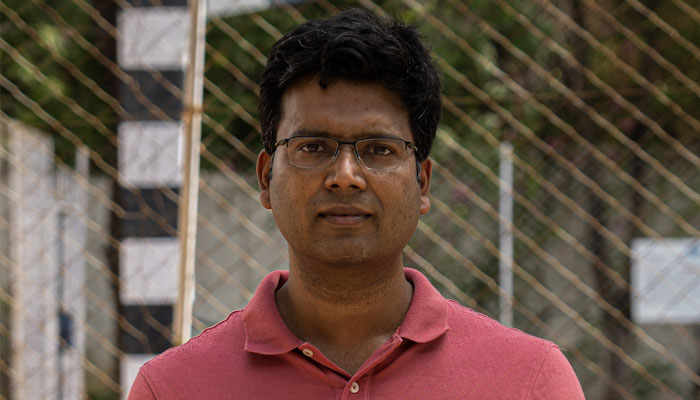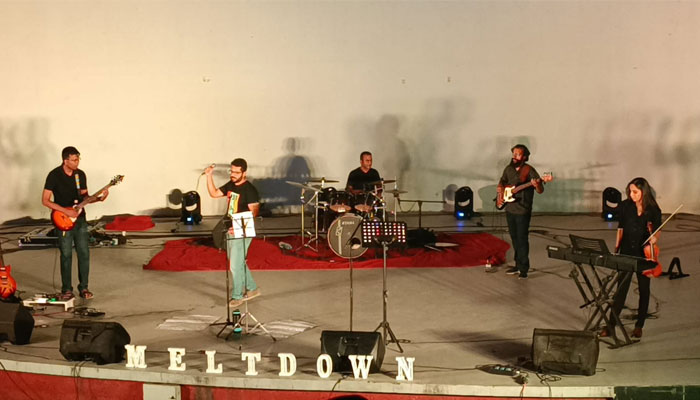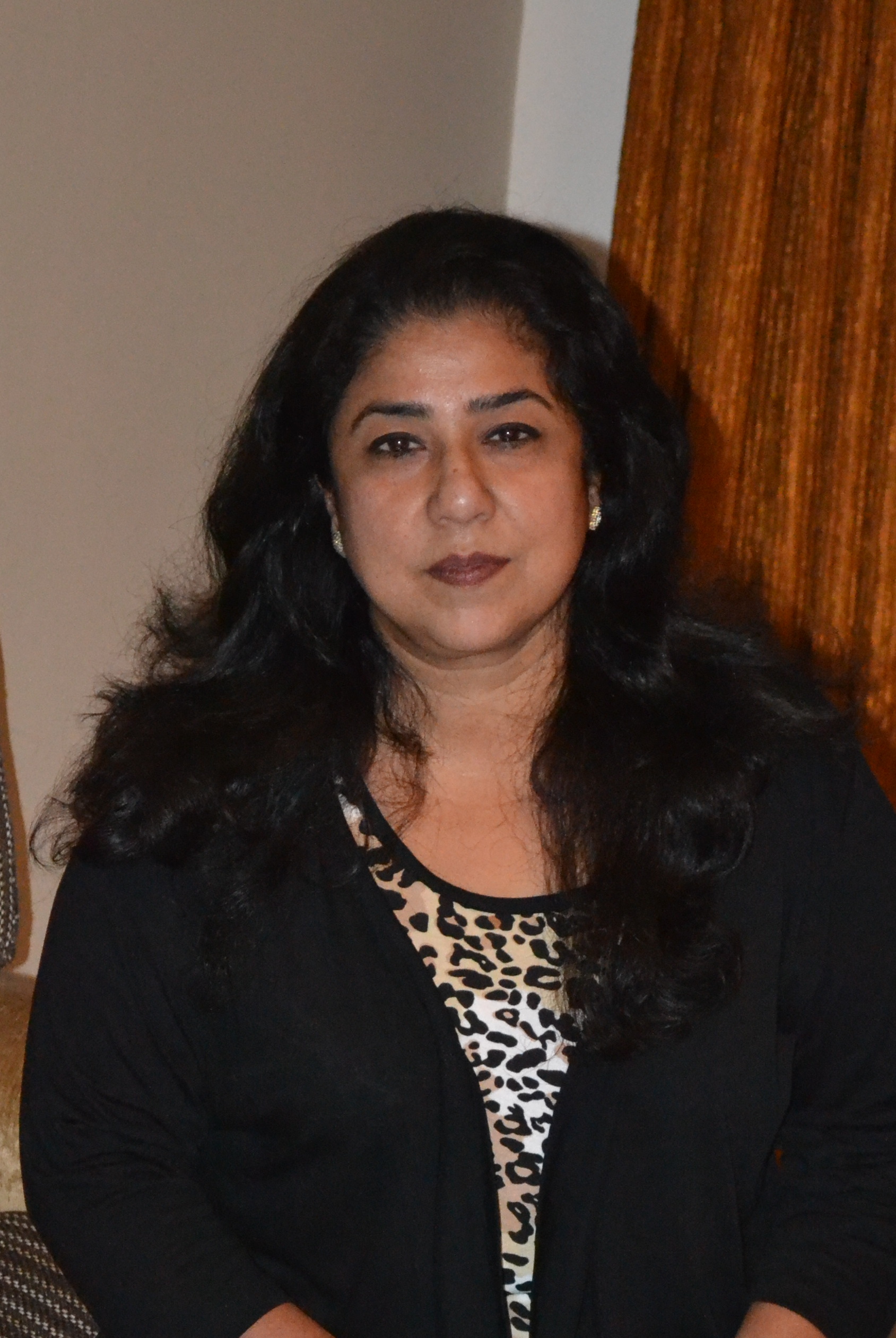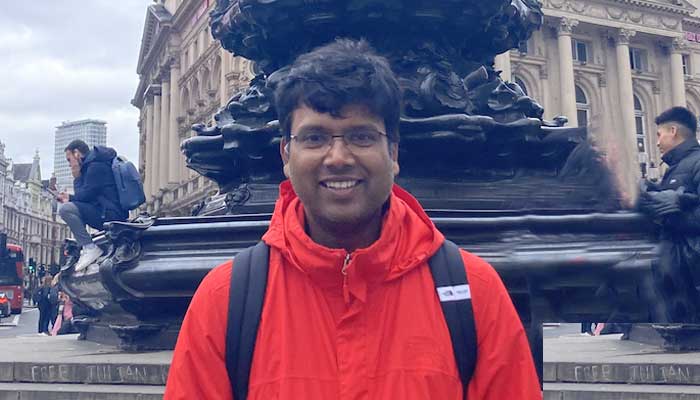Dr. Suryajith Chillara, an Assistant Professor with IIIT Hyderabad’s Center for Security, Theory and Algorithmic Research (CSTAR), is grappling with one of the many problems that have foxed the computational theoretical community from the time of Alan Turing.
His research broadly lies at the interface of Algorithms, Computational Complexity and Coding Theory. “My specialization is a sub-area of computational complexity called Algebraic complexity, a very niche field of fundamental research”, he explains. The theoretical computer scientist’s varied career graph began with B.Tech from IIT Kanpur, Masters & Ph.D from Chennai Mathematical Institute (CMI), and four years of post-doctoral research at IIT Bombay and Israel’s University of Haifa.
What is a Math purist doing at IIIT Hyderabad?
“It was pretty accidental,” muses Suryajith about his decision to join IIIT Hyderabad. It was fate that he would meet his old acquaintance – Dr. Girish Varma (a IIITH faculty member), in Haifa, who mentioned that he was hiring in theoretical computer science. Suryajith moved to CSTAR in August 2021.
“My primary goal in this university is to push students toward rigorous mathematical foundations and associated research”, observes Suryajith, who studies the computational complexity of algebraic objects. He teaches courses related to Advanced Algorithms, Algorithm Analysis and Design, Mathematical Foundations of Data Science, Data Structures and Algorithms, and (to his own surprise) Computer Systems Organization. He is collaborating with Prof. Venkatesh Choppella on Virtual Labs and the e-masters program.
P vs. NP – One of biggest unsolved puzzles from the Turing era
The work that Suryajith does, originates from the famous problem called P Versus NP. It looks at the question of ‘easily computable’ vs. ‘easily verifiable’ problems. Are problems whose solutions can be verified efficiently also be computed efficiently? Many real-world computational problems fall into either P or NP. Take an example of a traveling salesperson problem – A traveling salesperson has to visit every state capital of this country and come back to the starting point, say Hyderabad. The question is, can they make this trip in less than 23000 km? The answer to this question is either Yes or No. Hypothetically, suppose the answer is Yes, and a wizard comes and gives us the solution. In that case, we can verify this solution efficiently. Problems of this kind are in the set NP. We do not know an efficient algorithm to answer Yes or No.
In the late seventies and early eighties, Leslie Valiant, a brilliant researcher (currently a faculty member at Harvard), posited that you could look at the P versus NP question using the algebraic lens. He conjectured that an algebraic version of P vs NP should precede the resolution of the original problem. “That’s the space where I work, the algebraic version of P vs NP” he explains. It’s a niche field restricted to countries like Israel, France, Germany, the USA, Canada, and India. Interestingly, the Indian community in algebraic complexity is large, with most theoreticians gravitating to the hubs at IITs, IISc, TIFR, and now ITH. A most interesting fact is that most of these researchers (including Suryajith) trace their mathematical genealogy back to Prof. Somnath Biswas and to Prof. Vaidyeswaran Rajaraman, who pioneered Computer Science Education and supercomputing in India.
A close-knit community that shaped his career
After IIT Kanpur, Suryajith worked briefly with an IIT Kharagpur alumni-led start-up company before returning to academia in 2011. “My idea was to have a solid foundation in theoretical computer science,” says the scholar, who vacillated between staying in India and applying to foreign universities for graduate studies.
“The Theoretical Computer Science community in India is very close-knit and kind. This sort of ecosystem is very comforting and enriching for graduate students. This kindness helped me think without any work-based anxieties.”
He completed his Masters and Ph. D in algebraic complexity (a sub-field of theoretical computer science) from Chennai Mathematical Institute. This was followed by an eventful four-year post-doctoral tenure in algebraic complexity and coding theory at IIT Bombay, mentored by Prof. Nutan Limaye (who is currently at IT University, Copenhagen), and at the University of Haifa under Prof. Noga Ron-Zewi.
“If you are in theoretical computer science, Israel is the place to be,” he observes. “The country spends insane amounts of money on research, and a theoretical researcher has access to good funding (in comparison to many other countries). They would invite people for meet-ups and travel to conferences, and the community had a good vibrancy. The food was insane, and the people I met were extremely warm. During my Ph.D, I received a generous TCS grant that made research, workshops and conference visits to France and Germany possible. I also visited groups working in algebraic complexity in Tel Aviv, Paris, Lyon, and Saarbrucken. It’s a bonus that conferences are held in beautiful locations like Hamburg, Lyon, Caen, Budapest, Montpellier, Paris and Warwick”.

Building his community of theorists and thinkers
At first, it was his uncle, a mathematics teacher, who had an early influence on him. Later, the late Mr. Subramanian, a retired statistician from Railways from his coaching class, would play a significant role in getting the youngster hooked on mathematical problems at an early age; “He got me thinking about mathematical problems, not so much for the exams but for the fun of it”, he comments”. It wasn’t about winning Olympiads, championing entrance exams, or getting awards”.
“Given this background, the pace of it all was a bit disorienting for me in college. But college is a place where, along with getting grades, it’s also about finding your clan, right? I was lucky to have a group of friends who got me to think about life, and computation – more abstractly. Even though I was a mechanical engineering student, we did courses in computer science, algorithms, networking, graph theory, and computational geometry,” says Suryajith. Prof. Shashank Mehta and Prof. R. K. Ghosh were CS faculty at IIT Kanpur who pushed him in the right direction. At the same time, Prof. Anupam Saxena was his go-to advisor for existential issues.
“Working in theory is harder during your Ph.D and I was grateful for the nurturing ecosystem at CMI and IMSC, where people are extremely kind”. Thus, when Suryajith joined IIIT Hyderabad, he was pleasantly surprised to be welcomed into “an equally extremely warm community, with people who are generous with their time”.

Picking up the importance of Impact Factor Zero
An amateur guitarist from his IIT Kanpur days, Suryajith is now a member of the Institute’s music club. “With Vinoo Alluri, Ashwin Jayanti and Vishnu Sreekumar (with whom I had an overlap in IIT Kanpur), we formed a band on campus called “Impact Factor Zero”, says the amateur musician who has performed in the Institute at Unplugged, a faculty retreat and Meltdown. “I listen to everything under the sun, from Indian music, to classic rock, blues to jazz, and in between even death/thrash metal (which I got great exposure to during my summer internship in Sweden)”.

His eclectic taste in music extends to his reading choices too, that swings from Asimovian science fiction with a good dollop of strategy mixed in with dystopian philosophy, Neil Gaiman, to old fashioned Wodehousian humor, Amitav Ghosh and historical literature and podcasts. “
In Israel, our university was at the top of a mountain, and if I was stuck with something, I would go on long walks along the trekking trails to clear my head.” Now, in Hyderabad, he has the rocks around Rachakonda or Durgam Cheruvu instead of mountain trails.
Chilling on weekends involves meeting up with friends and family in Hyderabad, and exploring new eateries and cafes in town. Suryajith is a big fan of the British comedy scene, and new-age American comedy/satire series. He is currently binging on sci-fi dystopian series “Silo” on Apple TV.
He has an unusual nugget of wisdom for students joining grad school. “Academia (and theory groups in particular) is a hard place to be and it’s easy to kill somebody’s spirit. It’s important to look for a kind advisor. I’ve been lucky to have had amazingly kind mentors, and I intend to pay their kindness forward”.




Next post